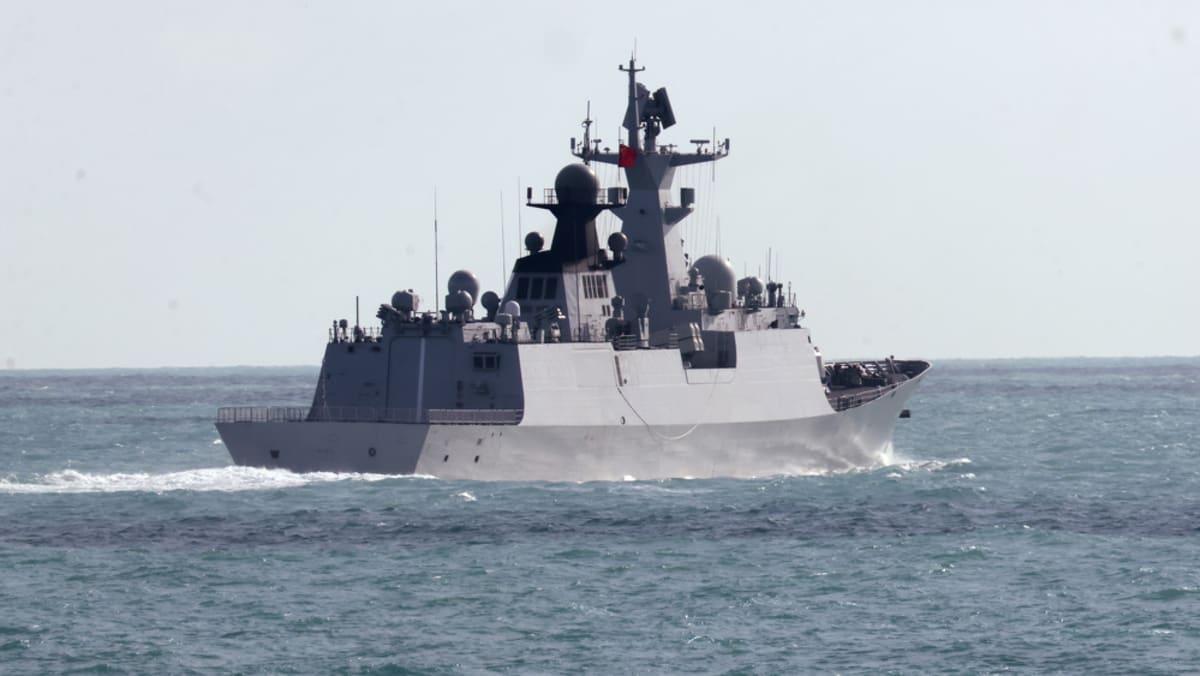Asia
New Zealand says Chinese naval vessel fires live rounds in new drill

China’s Naval Exercises Near New Zealand and Australia Spark Regional Concerns
The Incident: A Chinese Naval Task Force Conducts Live-Fire Drills
On Saturday, February 22, a Chinese naval task force engaged in a live-fire exercise in international waters between New Zealand and Australia. The exercise was conducted by three Chinese warships—a frigate, a cruiser, and a supply tanker—which had been monitored by Australian and New Zealand authorities since they were first spotted off Australia’s shores last week. The Chinese ships, operating in the Tasman Sea, issued a radio warning ahead of the drill, as is standard practice. Personnel aboard a New Zealand naval frigate observed the live rounds being fired from the Zunyi’s main gun, confirming the exercise was underway. This was the second such drill in two days, raising concerns among regional authorities.
New Zealand’s Response: Monitoring and Communication
New Zealand’s Defence Minister Judith Collins’ office confirmed that the Chinese task group had advised the exercise via radio channels, as they had done the previous day. New Zealand authorities worked closely with the NZ Civil Aviation Authority to ensure all aircraft in the vicinity were notified. The safety of all people, aircraft, and vessels in the area was emphasized as the top priority. While the exercise took place in international waters, New Zealand expressed concerns over the notification times and adherence to best practices, which would be "communicated appropriately" to Chinese authorities.
Australia’s Concerns: A Call for Clarity and Compliance
Australia expressed dissatisfaction with the lack of a satisfactory explanation from Beijing regarding Friday’s drill. The Chinese warships had broadcast a live-fire warning, described as "disconcerting," which forced commercial flights to alter their courses.Despite the deployment of a floating firing target during Friday’s exercise, no weapon firings were observed or heard. Australian Defence Minister Richard Marles noted that while China had adhered to international law, the exercise did not follow the best practice of providing 12-24 hours’ notice. This issue was raised with Beijing, and Foreign Minister Penny Wong discussed the matter directly with her Chinese counterpart, Wang Yi, on the sidelines of a G20 meeting in Johannesburg.
China’s Position: "Safe, Standard, and Professional" Exercises
Beijing defended the exercises as "safe, standard, and professional" training manoeuvres conducted in accordance with international law. The Chinese government did not comment on whether live ammunition was used during the drills. The exercises were described as routine and necessary for the readiness of the Chinese naval forces. China’s actions were framed as lawful and non-threatening, with no intent to provoke or disrupt regional stability. However, the lack of detailed clarification on the exercises and the abbreviated notice period raised questions among neighbouring countries.
Regional Implications: Balancing Security and Diplomacy
The incident highlights the delicate balance of security and diplomacy in the Indo-Pacific region. Australia and New Zealand, as close allies, have been closely monitoring China’s naval activities, reflecting broader concerns about China’s growing military presence in the region. While China’s exercises were conducted in international waters and thus lawful, the shortened notification period has been criticised for falling short of established best practices. This has sparked discussions about the need for clearer communication and coordination to avoid misunderstandings and ensure regional security.
A Delicate Balance: Moving Forward
The situation underscores the importance of open communication and cooperation among regional powers to maintain stability. While China has the right to conduct military exercises in international waters, the concerns of neighbouring countries regarding notification protocols highlight the need for transparency. Australia and New Zealand have made it clear that they will continue to monitor such activities closely, while China has reaffirmed its commitment to international law. The incident serves as a reminder of the complexities of naval operations in shared waters and the importance of diplomacy in addressing sensitivities.